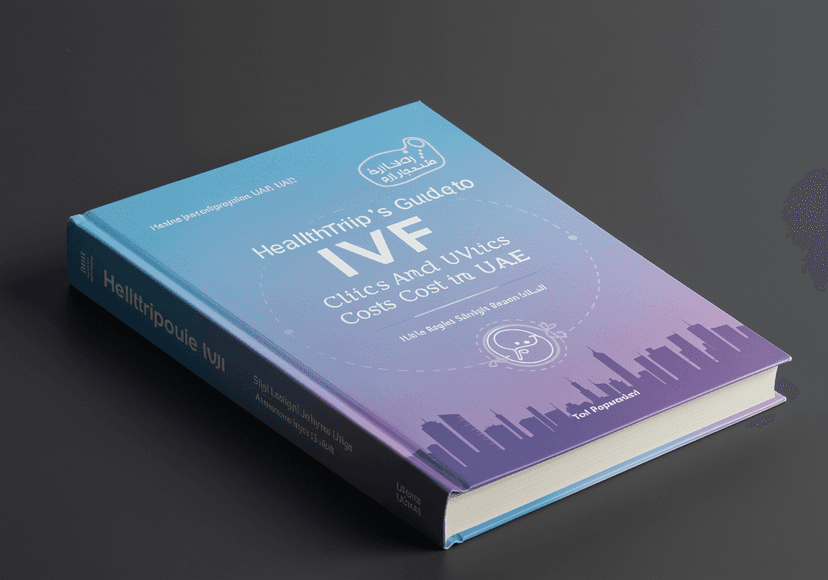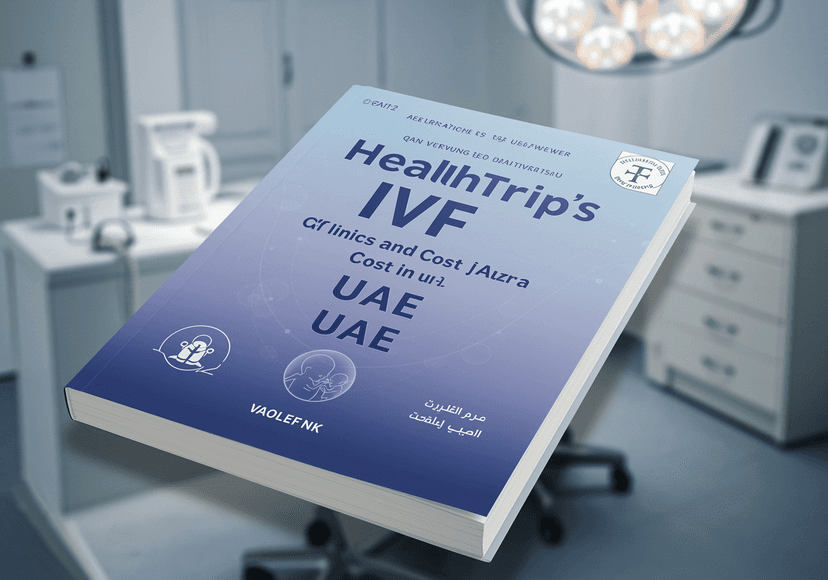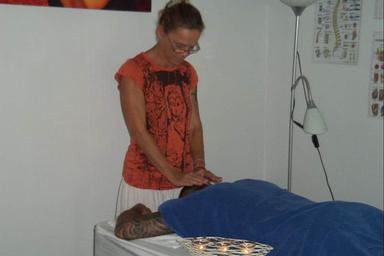
Breast Cancer Recurrence: UAE's Follow-Up Strategies
30 Oct, 2023
 Healthtrip
HealthtripBreast cancer is a significant health concern worldwide, affecting both women and, in rarer cases, men. In the United Arab Emirates (UAE), as in many other countries, breast cancer recurrence is a critical issue that requires comprehensive follow-up strategies to detect and manage it effectively. This blog explores the various aspects of breast cancer recurrence, the UAE's approach to follow-up strategies, and the importance of early detection and treatment.
Understanding Breast Cancer Recurrence
Breast cancer is a complex and prevalent health concern that affects millions of individuals worldwide. While significant progress has been made in its diagnosis and treatment, breast cancer recurrence remains a challenge. This section delves into the intricacies of breast cancer recurrence, discussing its various forms and why it is a critical issue in the realm of cancer care.
Breast cancer recurrence occurs when cancer cells reappear in the same breast or another part of the body after initial treatment. There are two primary types of breast cancer recurrence:
Most popular procedures in India
Types of Breast Cancer Recurrence
Breast cancer recurrence can manifest in different ways, each with distinct implications for diagnosis and treatment. The two primary types are:
1. Local Recurrence
Local recurrence occurs when cancer cells reappear in the same area of the breast or chest wall where the initial tumor was located. This suggests that some cancer cells were not completely eradicated during the initial treatment, and they have regrown at the primary site.
Wellness Treatments
Give yourself the time to relax
Lowest Prices Guaranteed!

Lowest Prices Guaranteed!
2. Distant Recurrence (Metastatic Breast Cancer)
Distant recurrence, also known as metastatic breast cancer, is the more worrisome form of recurrence. In this case, cancer cells have spread to other parts of the body, such as the bones, liver, lungs, or brain. Distant recurrence indicates a more aggressive and advanced stage of breast cancer.
The Importance of Early Detection and Treatment
Early detection and prompt treatment play a pivotal role in the management of breast cancer recurrence. Recognizing the signs and symptoms of recurrence at an early stage significantly improves the chances of successful treatment and long-term survival. This section highlights the critical importance of early detection and its impact on the outcomes of patients facing recurrent breast cancer.
1. Improved Treatment Efficacy
Early detection of breast cancer recurrence allows healthcare providers to intervene with targeted and more effective treatment strategies. When recurrence is identified in its initial stages, it is often more responsive to treatment options, and the likelihood of achieving a favorable response is higher. Early treatment can help control the disease before it advances to a more aggressive stage, improving the patient's prognosis.
2. Enhanced Quality of Life
Discovering breast cancer recurrence early can lead to less aggressive and less invasive treatment options. This not only increases the chances of treatment success but also reduces the physical and emotional burden on the patient. Less intensive treatment regimens are associated with fewer side effects, allowing patients to maintain a better quality of life during and after treatment.
3. Preventing Disease Progression
Early detection is instrumental in preventing the progression of recurrent breast cancer to more advanced stages. Distant recurrence, where cancer spreads to other parts of the body, can be particularly challenging to manage in advanced stages. Timely detection and intervention can help halt the spread of cancer cells, preserving the patient's overall health.
4. Minimizing Treatment Complexity
As breast cancer recurrence advances, the complexity of treatment options often increases. In advanced stages, patients may require a combination of surgery, radiation therapy, chemotherapy, targeted therapies, and immunotherapies. Detecting recurrence early may allow for less invasive and less complex treatment plans, which can lead to a more streamlined and manageable care process for the patient.
5. Psychological Well-being
The psychological impact of living with the fear of recurrence cannot be overstated. Early detection not only benefits patients physically but also alleviates the psychological burden. Promptly addressing recurrence reduces the uncertainty and anxiety that patients often experience, allowing them to focus on their recovery and well-being.
Follow-Up Strategies for Breast Cancer Recurrence
The United Arab Emirates (UAE) has adopted a comprehensive and patient-centric approach to address breast cancer recurrence. These follow-up strategies play a pivotal role in ensuring the early detection, management, and support for patients who face the challenge of recurrent breast cancer.
1. Regular Medical Check-ups
Central to the UAE's approach is the establishment of a rigorous schedule of regular medical check-ups for individuals who have undergone breast cancer treatment. These check-ups are conducted by specialized oncologists and include the following components:
- Clinical Breast Examinations: Trained healthcare professionals perform thorough clinical breast examinations to detect any physical changes or abnormalities in the breast tissue.
- Mammograms: Regular mammograms are recommended as part of the surveillance process. These X-ray images of the breast can detect early signs of recurrence, often before physical symptoms manifest.
- Advanced Imaging: In addition to mammograms, patients may undergo advanced imaging tests like ultrasound and magnetic resonance imaging (MRI) to obtain a more detailed view of breast tissue and identify any potential issues.
The frequency and specific tests conducted during these check-ups are tailored to each patient's individual medical history and risk factors.
2. Survivorship Programs
The UAE recognizes that breast cancer survivors require ongoing support beyond their primary treatment. Survivorship programs are an integral part of the follow-up strategy. These programs offer a range of services and resources, including:
- Counseling: Emotional and psychological support is provided to help survivors cope with the mental and emotional challenges of life after breast cancer treatment.
- Education: Survivorship programs educate patients about post-treatment care, potential side effects, and the importance of maintaining a healthy lifestyle to reduce the risk of recurrence.
- Nutritional Guidance: Nutritional counseling ensures that survivors are equipped with the knowledge to make healthy dietary choices that support their overall well-being.
3. Risk Assessment
Breast cancer recurrence risk assessment is a crucial component of the UAE's follow-up strategy. This process involves a thorough evaluation of individual risk factors, including:
- Cancer Stage and Type: The stage and type of cancer initially diagnosed play a significant role in determining the risk of recurrence.
- Lymph Node Involvement: The extent of lymph node involvement during the primary diagnosis is assessed, as it can influence the risk of recurrence.
- Effectiveness of Initial Treatment: The efficacy of the initial treatment plan is reviewed, as successful treatment reduces the likelihood of recurrence.
Based on these factors, the UAE's healthcare professionals develop personalized follow-up plans, which may include more frequent or specialized screenings for patients at higher risk of recurrence.
4. Patient Education
Patient education is a cornerstone of the UAE's follow-up strategy. Patients are empowered with knowledge about:
- Self-Breast Examinations: Patients learn how to perform regular self-breast examinations, enabling them to detect any changes or abnormalities early.
- Symptom Awareness: They are educated about the potential signs and symptoms of breast cancer recurrence, emphasizing the importance of prompt reporting to healthcare providers.
- Healthy Lifestyle Choices: Patients are encouraged to make healthy lifestyle choices, including maintaining a balanced diet, engaging in regular physical activity, and avoiding smoking and excessive alcohol consumption.
5. Advanced Treatment Options
The UAE's healthcare system is equipped with state-of-the-art facilities and a team of highly skilled oncologists and surgeons. Advanced treatment options are readily available to manage recurrent breast cancer effectively. These treatments may include:
- Targeted Therapies: Targeted therapies are designed to specifically target cancer cells, minimizing damage to healthy tissue.
- Immunotherapies: Immunotherapies harness the body's immune system to fight cancer and are increasingly utilized in recurrent breast cancer cases.
- Radiation Therapy: In some instances, radiation therapy may be employed to control local recurrences.
- Surgery: Surgical interventions may be considered to remove localized recurrence.
The Challenge of Breast Cancer Recurrence
Breast cancer recurrence presents a significant challenge in the realm of cancer care. Understanding the complexities and implications of breast cancer recurrence is crucial for healthcare providers and patients alike. This section explores the multifaceted challenges posed by breast cancer recurrence.
1. Treatment Resistance
One of the foremost challenges of breast cancer recurrence is the development of treatment resistance. Some cancer cells may become resistant to the treatments that were initially effective during the first diagnosis. This resistance can make it considerably more challenging to control the disease when it re-emerges. Patients may require alternative or more aggressive treatment approaches, often with increased side effects.
2. Aggressive Nature
Breast cancer recurrence often presents with a more aggressive behavior compared to the initial diagnosis. It can progress rapidly, leading to a higher risk of metastasis, where cancer cells spread to other parts of the body. This aggressive nature of recurrent breast cancer necessitates more intensive treatment strategies and vigilant monitoring to mitigate its impact.
3. Psychological Impact
The fear of breast cancer recurrence can have a profound psychological impact on patients. Even after successful primary treatment, patients live with the persistent anxiety and uncertainty of whether the cancer will return. This emotional burden can affect their overall well-being and requires robust psychological support.
4. Complex Treatment Decisions
The management of recurrent breast cancer involves complex treatment decisions. It may require a multidisciplinary approach, combining surgery, radiation therapy, chemotherapy, targeted therapies, and immunotherapies. Decisions about the most appropriate treatment plan must be individualized, taking into account the patient's medical history, the specific characteristics of the recurrence, and their overall health.
5. Monitoring and Surveillance
The need for ongoing monitoring and surveillance is another challenge. Patients who have faced breast cancer recurrence require regular follow-up appointments and imaging tests to detect any signs of recurrence. The frequency and type of follow-up care are determined based on individual patient risk factors, making it a highly personalized and ongoing process.
6. Survivorship Support
Beyond medical challenges, breast cancer recurrence requires comprehensive survivorship support. Survivors may grapple with long-term side effects of previous treatments, emotional distress, and the challenges of adapting to life after cancer. Providing appropriate support is essential to enhance the quality of life for survivors.
7. Monitoring and Management
Breast cancer recurrence is not inevitable, and early detection plays a crucial role in improving the outcomes. Patients who have undergone breast cancer treatment should engage in regular follow-up care. Monitoring typically includes clinical breast examinations, mammograms, and, if necessary, other imaging tests. The frequency and type of follow-up appointments depend on individual patient factors.
Furthermore, advancements in personalized medicine, liquid biopsies, and immunotherapies are expanding the options for managing recurrent breast cancer. These innovative approaches are helping to improve treatment efficacy and enhance the quality of life for patients living with recurrent breast cancer.
The Role of Research and Innovation
Breast cancer recurrence is an ongoing area of research and innovation in the UAE. The nation is actively investing in cutting-edge technology and scientific advancements to improve the understanding and management of breast cancer recurrence. This commitment to research is crucial for developing more effective therapies and improving long-term outcomes for patients.
Some of the innovative approaches that researchers in the UAE are exploring include:
1. Personalized Medicine
The UAE is embracing the concept of personalized medicine, tailoring treatment plans based on an individual's genetic makeup and the specific characteristics of their cancer. This approach allows for more precise and effective treatment options, minimizing the risk of recurrence.
2. Liquid Biopsies
Liquid biopsies are emerging as a non-invasive tool for monitoring cancer recurrence. These tests analyze blood samples for tiny fragments of DNA or RNA released by tumor cells, providing a real-time assessment of a patient's cancer status. This technology can detect recurrence much earlier than traditional imaging methods.
3. Immunotherapy Advancements
Immunotherapy, which harnesses the body's immune system to fight cancer, is another area of intense research in the UAE. Scientists are working to develop more potent immunotherapies to treat recurrent breast cancer and prevent it from spreading.
4. Telemedicine and Remote Monitoring
Telemedicine and remote monitoring are becoming integral components of follow-up strategies in the UAE. These technologies enable patients to stay connected with their healthcare providers, facilitating timely consultations and assessments without the need for frequent in-person visits.
Moving Forward: Raising Awareness
In addition to their robust follow-up strategies and innovative approaches to treatment, the United Arab Emirates is also actively involved in raising awareness about breast cancer recurrence. This effort is vital in promoting early detection and proactive measures to prevent recurrence. Here are some ways the UAE is spreading awareness:
1. Public Health Campaigns
The UAE conducts public health campaigns that focus on breast cancer awareness and the importance of regular screenings. These campaigns aim to educate the public, reduce the stigma surrounding breast cancer, and encourage women to get regular check-ups.
2. Educational Initiatives
Schools and universities in the UAE include breast health education in their curriculum, ensuring that young people are informed about breast cancer, its risk factors, and the significance of early detection.
3. Community Support
Community events, such as breast cancer awareness walks, fundraisers, and support group gatherings, help in creating a supportive network of individuals who are committed to raising awareness and supporting those affected by breast cancer recurrence.
4. Online Resources
The UAE provides easily accessible online resources and information for both patients and healthcare professionals. These resources include information on prevention, screening, and the latest advancements in breast cancer research.
Final Thoughts
Breast cancer recurrence is a significant challenge that demands comprehensive strategies for detection, treatment, and support. The United Arab Emirates has made remarkable strides in addressing this issue by prioritizing early detection, offering advanced treatment options, and providing emotional and psychological support to survivors. The nation's commitment to research and innovation, along with its efforts to raise awareness, contributes to a holistic approach to managing breast cancer recurrence.
By continuing to invest in research, expand support networks, and engage in global collaborations, the UAE is not only improving the prospects for breast cancer survivors within its borders but also contributing to the global fight against breast cancer recurrence. The dedication of healthcare professionals, researchers, and the unwavering support of the healthcare system will play a crucial role in the ongoing effort to reduce the impact of breast cancer recurrence on individuals and their families
Related Blogs

Healthtrip's Guide to IVF Clinics and Costs in UAE
Discover top IVF clinics in the UAE and understand treatment

Healthtrip's Guide to IVF Clinics and Costs in UAE
Discover top IVF clinics in the UAE and understand treatment

Revolutionizing Dialysis Treatment in the UAE
Mediclinic Al Twar Dialysis Center offers advanced dialysis treatment options

Discover Exceptional Healthcare at Mediclinic Parkview Hospital
Get premium healthcare services at Mediclinic Parkview Hospital, a state-of-the-art

Expert Medical Care and Advanced Treatment Options at KPJ Johor Specialist Hospital
Experience personalized medical care and advanced treatment options at KPJ

Unparalleled Medical Care at Corniche Hospital in UAE
Get access to top-notch medical facilities and expertise at Corniche










